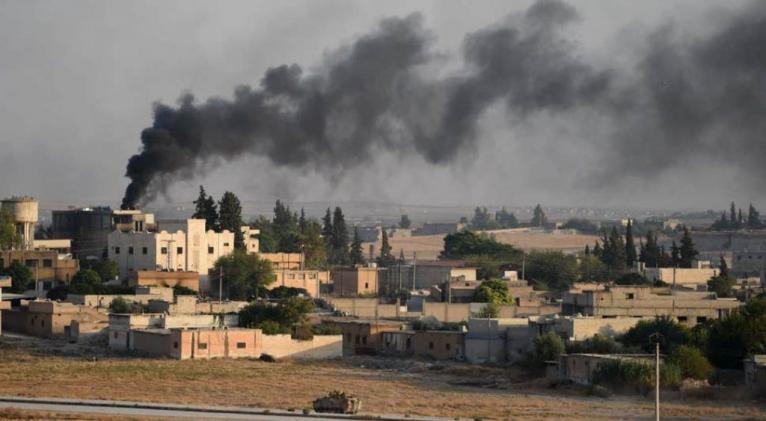Syria’s Kurds strike deal with Assad after being abandoned by US
especiales

Kurdish-led forces in Syria have struck a deal with Bashar al-Assad’s government to hand over areas along the border to the Syrian army in a last ditch effort to halt a Turkish attack.
The Kurdish-led Syrian Democratic Forces, one of the west’s key allies in the fight against Isis, said the army would deploy along the border with Turkey “to repel this aggression and liberate the areas entered by the Turkish army and its hired mercenaries”.
The deal was struck in response to a wide-scale military operation launched by Turkey against the SDF last week, which has killed more than 60 civilians and sparked fears of ethnic cleansing.
Turkey’s armed forces and allied Syrian rebels have made rapid gains in the past week, taking control of two cities along the border and threatening to advance further. General Mazloum Kobani Abdi, commander of the SDF, described the operation as an “existential threat” to Syria’s Kurds.
The agreement could spell the end of a years-long experiment in autonomy led by Syria’s Kurds, and marks a major shift in alliances for the embattled community.
Turkey has long threatened to attack the SDF, which it considers a terror organisation for its links to a Kurdish separatist group that has fought the Turkish state for decades. Ankara said its military operation was launched to implement a “safe zone” along its border with Syria, free of SDF fighters.
But the SDF – a mostly Kurdish militia with a smaller Arab contingent – has been a key ally of the US in the fight against Isis. The presence of US troops in Syria alongside the group had acted as a deterrence for a Turkish assault. That changed quickly last week when Donald Trump made a shock announcement that the US would not stand in the way of Turkey’s plans to enter Syria. The SDF described the abrupt shift as a “stab in the back”.
The deal will see the Syrian army deployed along a large stretch of the Turkey-Syria border, the SDF said, in an effort to deter any further Turkish incursion.
The agreement brings its own dangers, however. For decades, Kurds in Syria have faced repression and discrimination at the hands of the government. Although the civil war had caused great upheaval for the community, it has also allowed them to win new freedoms, which may now be lost again.
yria’s Kurds took over control of majority Kurdish areas from the government shortly after the outbreak of Syria’s civil war in 2011, but largely refrained from directly fighting it.
In the time since, it extended that area of control beyond Kurdish areas as it recaptured territory held by Isis.
Over the past few years it has built an alternative form of governance in the areas under its control, with the eventual aim of creating an autonomous administration that would outlast the war.













Add new comment